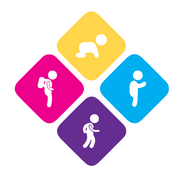
Influenza, more commonly known as the flu, is common in children in the U.S. If your child has this illness, you need to watch for complications and potentially seek treatment from their pediatrician. The problem is, it can sometimes be hard to tell the flu from the common cold, which is much less serious and rarely needs medical attention. The guide below explores the differences.
Extra Symptoms
Both the flu and a cold are respiratory infections, so they come with sore throats, runny noses, coughing, and sometimes sneezing. However, there are several symptoms that are rarely seen with a cold but common with the flu.
 A fever is the biggest one, indicating a more severe infection the body is actively fighting. Your child may also experience headaches, body aches, and chills, and might vomit or have diarrhea. Finally, the flu causes fatigue; you might notice that your child is sleeping more, seems quieter or less energetic than usual, or doesn't want to play.
A fever is the biggest one, indicating a more severe infection the body is actively fighting. Your child may also experience headaches, body aches, and chills, and might vomit or have diarrhea. Finally, the flu causes fatigue; you might notice that your child is sleeping more, seems quieter or less energetic than usual, or doesn't want to play.
Severity
As a rule of thumb, a cold usually comes on gradually over several days. A flu gets bad much more quickly, and the symptoms tend to be more severe. Telling the difference isn't a precise science, so trust your gut; as a parent, you can probably tell if this is worse than your child's usual colds.
If you're worried, call your pediatrician sooner rather than later, as they’re more likely to be busy during flu season. Early detection and treatment can prevent the flu from turning into pneumonia, an ear or sinus infection, or another medical condition.
Treatment
While both flus and colds are often helped by having the person infected rest, drink fluids, and take over-the-counter medications, your child’s pediatrician may recommend antiviral drugs to deal with a flu. Additionally, you can take proactive steps to protect your child’s health by getting them immunized.
If you need to see a pediatrician, choose Children & Adolescent Clinic PC in Hastings, NE. Serving Adams County 24/7, they offer child wellness exams, care for illnesses and injuries, and offer advice about mental health issues and child development concerns, including depression, autism, ADHD, and bedwetting. Call (402) 463-6828 for an appointment or see their patient resources online.
About the Business
Have a question? Ask the experts!
Send your question

